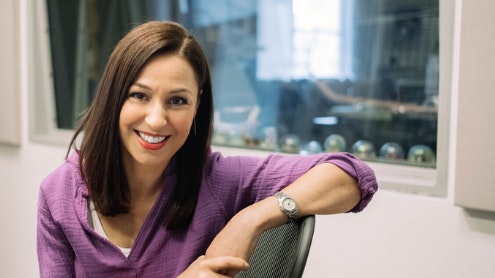Homepage
•
Learning Library
•
Blog
•
Interview: Manoush Zomorodi on Where Technology Is Taking Us
Expand breadcrumbs
Expand breadcrumbs
- Learning Library
- Blog
- Interview: Manoush Zomorodi on Where Technology Is Taking Us
- Homepage
- •
- Learning Library
- •
- Blog
- •
- Interview: Manoush Zomorodi on Where Technology Is Taking Us
Interview: Manoush Zomorodi on Where Technology Is Taking Us
By Julie Phillips Randles
March 11, 2022








